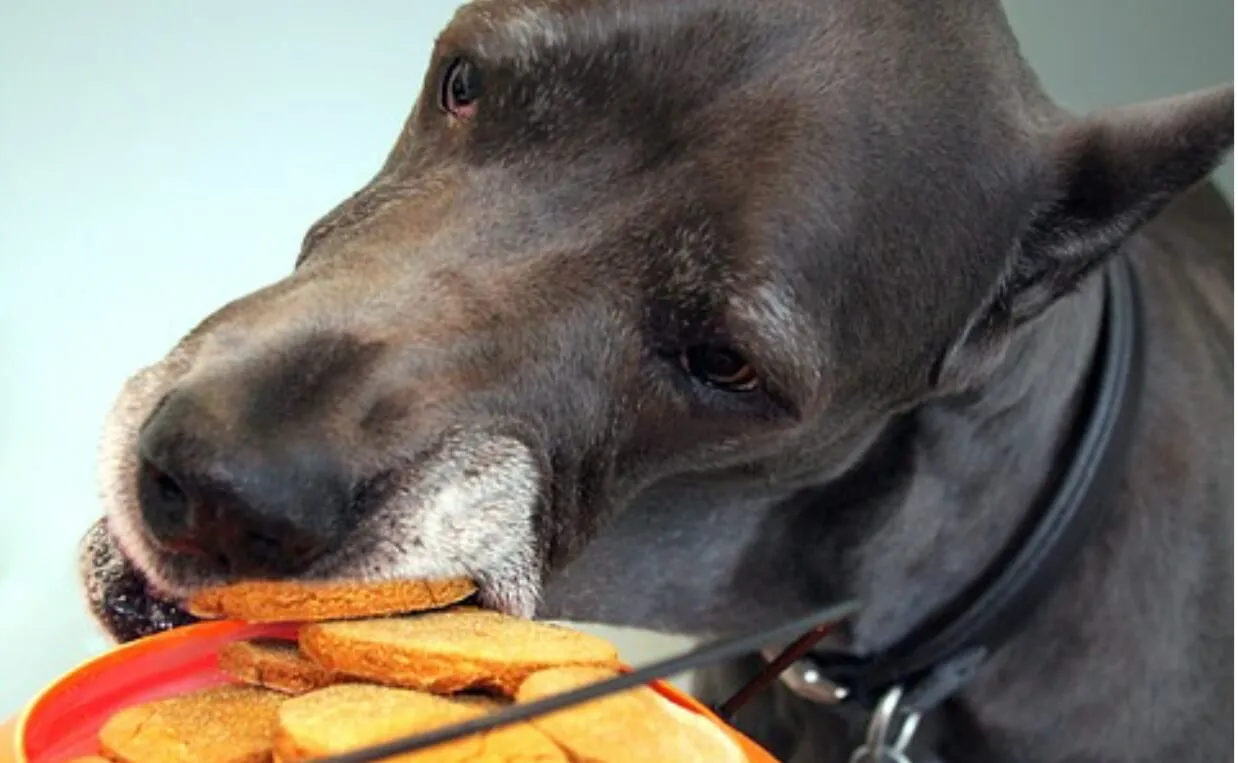Experiencing a dog with an upset stomach can be distressing for any pet owner. Just like humans, dogs can occasionally suffer from digestive issues, showing symptoms ranging from a temporary loss of appetite to more severe signs like vomiting and diarrhea. While a mild upset can often be managed at home with careful feeding, it’s crucial to know when to seek professional veterinary advice. This guide, brought to you by Dog Care Story, will walk you through recognizing the signs of an upset stomach, understanding potential causes, and most importantly, what you can safely feed your dog to help them feel better, all while emphasizing when it’s time to call the vet.
Recognizing an Upset Stomach in Your Dog
Identifying the signs of an upset stomach early can help you act quickly to support your dog’s recovery. A common indicator is a change in appetite. While a temporary refusal to eat might not be an immediate concern, persistent disinterest in food is a red flag.
Key signs of loss of appetite in dogs include:
- Eating less food than usual or refusing meals entirely.
- Showing no interest in treats, even highly desirable ones.
- Attempting to eat but struggling or failing.
- Noteworthy weight loss.
- Weakness and lethargy.
- Vomiting or diarrhea.
Many factors can contribute to a dog losing their appetite or developing an upset stomach. Common reasons can range from mild issues to more serious underlying conditions, making veterinary consultation vital if symptoms persist. Reasons include illnesses, infections, disease, recovery from surgery, stress, sudden dietary changes, or consuming human foods that are difficult for dogs to digest. More serious causes, though less common, can include depression or cancer. If your dog refuses to eat for more than two consecutive meals, or exhibits other concerning symptoms, prompt veterinary attention is highly recommended.
When to Seek Veterinary Care Immediately
While some mild upsets can be managed at home, certain symptoms warrant immediate contact with your veterinarian. Being proactive can be life-saving for your furry friend.
Contact your vet right away if your dog exhibits any of the following:
- Frequent or projectile vomiting.
- Inability to keep water down or vomiting bile.
- Blood or unusual material present in the vomit.
- Signs of lethargy, depression, discomfort, or bloating.
- Decreased urination.
- A combination of severe bloating, diarrhea, and abdominal pain.
It’s also crucial to act swiftly if you suspect your dog has ingested something toxic. Common human foods that are dangerous for dogs include chocolate, onions, garlic, macadamia nuts, and raisins. If your dog is attempting to vomit but cannot, it could be a symptom of gastric dilatation volvulus (GDV), commonly known as bloat, which is a life-threatening condition requiring emergency care. For a comprehensive list of potentially harmful foods, you might find this article helpful: what foods dogs can t eat.
 A sick dog looking sadly towards its food bowl, indicating an upset stomach.
A sick dog looking sadly towards its food bowl, indicating an upset stomach.
Safe and Soothing Foods for Your Dog’s Upset Stomach
Once your veterinarian has ruled out any major health concerns, providing a bland, easy-to-digest diet can significantly aid your dog’s recovery from a mild upset stomach, including gas, nausea, constipation, or diarrhea. Remember to always discuss any diet plan with your vet, especially if your dog has existing health conditions like diabetes, cancer, allergies, or if you have a senior dog, as they may require specialized nutritional support. Here are 10 foods often recommended to help a sick dog feel better:
1. Chicken and Rice
This classic combination is a go-to for many veterinarians due to its mildness and ease of digestion. Chicken and white rice form the primary ingredients in numerous commercial dog foods for a reason – they are gentle on the digestive system. When preparing, ensure you use boneless, skinless chicken breasts and plain white rice. Crucially, avoid all oils, butters, and seasonings, including salt. The chicken should be cooked thoroughly and then shredded or cut into small, bite-sized pieces to prevent choking. This bland diet helps settle the stomach without irritating it further.
2. Shredded Chicken
Plain, boiled, unseasoned shredded chicken is an excellent choice for a dog with an upset stomach who has lost their appetite. Its appealing scent and palatability can encourage eating, while its easy-to-digest nature provides essential protein, vitamins, minerals, fats, and amino acids crucial for healing. Always ensure the chicken is thoroughly cooked and free of any bones or skin. This can be a good standalone option or mixed with other bland foods.
3. Pumpkin
Pumpkin and sweet potato are root vegetables celebrated for their digestive benefits. They are rich in fiber and packed with vitamins and minerals, which can help regulate a dog’s digestive system. Adding a small amount of pumpkin to your dog’s meal can be particularly effective for relieving constipation. Veterinarians typically recommend one to four tablespoons of pumpkin, depending on your dog’s size. Canned pumpkin is a convenient option, but it’s vital to use plain, unsweetened pumpkin without any added spices or ingredients, such as those found in pumpkin pie filling, as these can irritate an already upset stomach.
 A happy Great Dane enjoying a pumpkin treat, a healthy and easily digestible option.
A happy Great Dane enjoying a pumpkin treat, a healthy and easily digestible option.
4. Bone Broth
Bone broth is a highly nutritious, hydrating, and flavorful liquid that is incredibly gentle on a dog’s digestive system and promotes healing. It’s especially beneficial for dogs who are refusing solid food. To make bone broth, simmer beef marrow bones, turkey, or chicken bones covered with water on low heat for at least 24 hours. After cooking, let the broth cool in the refrigerator and then skim off any hardened fat from the surface. Always strain the broth carefully and discard all cooked bones, as they can splinter and cause severe internal damage if ingested by your dog.
5. Baby Food
Certain types of baby food are often used in veterinary hospitals to feed dogs, especially those needing to take oral medication due to its smooth texture and ease of swallowing and digestion. Chicken, lamb, and turkey baby foods are good choices. However, it is paramount to ensure there are no added ingredients like garlic or onion powder, which are toxic to dogs. Always check the label meticulously before offering baby food to your sick pup.
 A large breed dog looking unwell, resting on a comfortable blanket after a stomach upset.
A large breed dog looking unwell, resting on a comfortable blanket after a stomach upset.
6. Eggs
Cooked eggs can be an excellent source of easily digestible protein for sick dogs. They are generally well-loved by dogs, making them an appealing option when appetite is low. Scrambled or boiled eggs, without any added butter, oil, or seasonings, can provide a nutritional boost without further upsetting the stomach. Ensure they are thoroughly cooked to eliminate any risk of salmonella.
7. Oatmeal
Oatmeal is a good source of fiber, beneficial nutrients, minerals, and antioxidants. It contains Vitamin B, which contributes to a healthy coat, and linoleic acid, an omega-6 fatty acid important for skin health. When preparing oatmeal for your dog, cook it with water, not milk, as many dogs struggle to digest lactose. Be cautious not to overfeed, as excessive fiber can sometimes lead to an upset stomach. Plain, unflavored oatmeal is key. For more ideas on digestible human foods, consider exploring what human food that dogs can eat.
8. White Fish
For dogs who have lost their appetite due to pain or a diminished sense of smell, the strong scent of fish can be very motivating. White fish, such as cod or tilapia, provides high-quality protein along with essential vitamins and minerals. Always ensure the fish is plain, thoroughly cooked, and completely deboned and skinned before offering it to your dog. Like other bland diet options, no seasonings should be added.
9. Potatoes
Potatoes are nutrient-rich root vegetables, offering vital vitamins and minerals like Vitamin C, B6, iron, and magnesium. They can be a good source of carbohydrates for energy when a dog is recovering. It is crucial to cook potatoes thoroughly until they are soft and to peel them, as raw potato skin can be toxic. Just like with other foods for an upset stomach, do not add any seasonings, not even salt. Plain, boiled, mashed potatoes are the safest option.
 A small sick dog resting on a cozy blanket, looking uncomfortable.
A small sick dog resting on a cozy blanket, looking uncomfortable.
10. Plain Yogurt
Plain yogurt, free from any sweeteners (especially artificial ones like xylitol, which is highly toxic to dogs), is rich in calcium and protein. It can also act as a probiotic, introducing beneficial bacteria to your dog’s gut, which can support a healthy digestive system. Only offer plain, unsweetened yogurt in moderation, and always confirm it contains live and active cultures. Probiotics can be very helpful for restoring gut balance after an upset. If your dog isn’t eating at all, you may find additional tips here: what to give a dog that will not eat.
Conclusion
Navigating an upset stomach in your dog requires careful observation, timely veterinary consultation, and a thoughtful approach to their diet. While the bland food options listed above can be instrumental in helping your dog recover, they are not a substitute for professional medical advice. Always consult your veterinarian to rule out serious underlying conditions and to tailor a recovery plan specific to your dog’s symptoms and health status. Your vet is the best resource for guiding you on what to feed your dog when he or she experiences an upset stomach. By working together with your vet, you can ensure your beloved companion receives the best possible care to get back to their happy, healthy self.
For more expert advice on canine health and nutrition, explore other articles on Dog Care Story!
